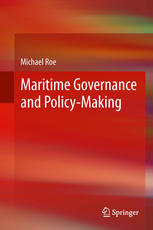

Most ebook files are in PDF format, so you can easily read them using various software such as Foxit Reader or directly on the Google Chrome browser.
Some ebook files are released by publishers in other formats such as .awz, .mobi, .epub, .fb2, etc. You may need to install specific software to read these formats on mobile/PC, such as Calibre.
Please read the tutorial at this link: https://ebookbell.com/faq
We offer FREE conversion to the popular formats you request; however, this may take some time. Therefore, right after payment, please email us, and we will try to provide the service as quickly as possible.
For some exceptional file formats or broken links (if any), please refrain from opening any disputes. Instead, email us first, and we will try to assist within a maximum of 6 hours.
EbookBell Team

0.0
0 reviewsA close analysis of the framework of existing governance and the existing jurisdictional arrangements for shipping and ports reveals that while policy-making is characterized by national considerations through flags, institutional representation at all jurisdictions and the inviolability of the state, the commercial, financial, legal and operational environment of the sector is almost wholly global. This governance mismatch means that in practice the maritime industry can avoid policies which it dislikes by trading nations off against one another, while enjoying the freedoms and benefits of a globalized economy.
A Post-modern interpretation of this globalized society prompts suggestions for change in maritime policy-making so that the governance of the sector better matches more closely the environment in which shipping and ports operate. Maritime Governance and Policy-Making is a controversial commentary on the record of policy-making in the maritime sector and assesses whether the reason for continued policy failure rests with the inadequate governance of the sector.
Maritime Governance and Policy-Making addresses fundamental questions of governance, jurisdiction and policy and applies them to the maritime sector. This makes it of much more interest to a much wider audience – including students, researchers, government officials, and those with industrial and commercial interests in the shipping and ports areas - and also of more value as it places the specific maritime issues into their wider context.
Maritime Governance and Policy-Making addresses fundamental questions of governance, jurisdiction and policy and applies them to the maritime sector. This makes it of much more interest to a much wider audience – including students, researchers, government officials, and those with industrial and commercial interests in the shipping and ports areas - and also of more value as it places the specific maritime issues into their wider context.